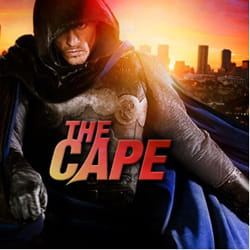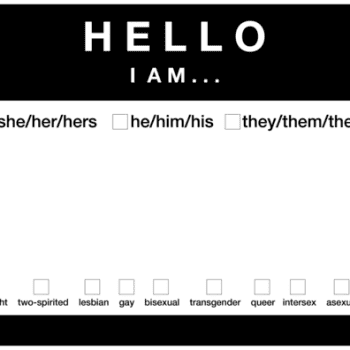 Few popular art forms have so perfectly encapsulated the peculiarly dual nature of the Heroic American Spirit as that of the superhero comic.
Few popular art forms have so perfectly encapsulated the peculiarly dual nature of the Heroic American Spirit as that of the superhero comic.
On one hand stands Superman, Captain America, Thor, Wonder Woman and the like—idealized, anatomically-unlikely characters motivated by such universal principles as Truth, Justice, and The American Way. These heroes, whose perfection and altruism conjure up images of the sparkling City on the Hill so popularized by our Puritanical forefathers, use their extraordinary, superhuman gifts to rule and protect the world in ways evocative of an almost-Divine Providence.
On the other hand are aligned such superheroes as the Phantom, the Spirit, the Watchmen, and their ilk—individuals stripped of such extraordinary physical prowess, and motivated by far more human loves and hatreds. They are self-made legends: post-modern Horatiuses pulled up by their own shiny, black-leather bootstraps to stand alone against the inexorably rising tide of evil that surges all around them.
While many superhero tales have managed to incorporate the dueling aspects of the Heroic American mythos into a coherent character, in recent years the post-modern hero has moved to the fore. The impressive box-office success of Nolan's Batman and Favreau's Iron Man (coupled with the significant economic disappointments of Singer's Superman and Tim Story's Fantastic Four) suggests that we have grown far more comfortable with our self-made, cynical (and explainable) side than with the intervention of some miraculous, inexplicable being.
 "The Cape," NBC's latest foray into the World of Superhero TV, falls firmly into the post-modern category. In the recent, decently-received pilot episode, protagonist Vince Farady is a "good cop" who finds himself framed for the crimes of his arch-nemesis, Chess. Befriended by a bizarre troop of circus misfits (is there any other kind?) who endow him with the extraordinary textile contraption that gives the show its name, he sets out to battle the corruption and evil threatening to overrun his beloved Palm City. Along the way, he must struggle to balance his family obligations with his new-found vigilante role, and also confront the obligatory presence of his own personal demons.
"The Cape," NBC's latest foray into the World of Superhero TV, falls firmly into the post-modern category. In the recent, decently-received pilot episode, protagonist Vince Farady is a "good cop" who finds himself framed for the crimes of his arch-nemesis, Chess. Befriended by a bizarre troop of circus misfits (is there any other kind?) who endow him with the extraordinary textile contraption that gives the show its name, he sets out to battle the corruption and evil threatening to overrun his beloved Palm City. Along the way, he must struggle to balance his family obligations with his new-found vigilante role, and also confront the obligatory presence of his own personal demons.
Understandably in today's over-saturated superhero genre, "The Cape" struggles to distance itself from its more popular (and costlier) cinematic step-brothers. At times, the show feels like little more than a cut-rate Batman Begins—the style, setting, and plot sometimes seem to outright burglarize Nolan's work, rather than borrow from it. In the final scene of the show's two-part premiere, the Cape stands guard over Palm City in a shockingly-Bale-like silhouette while Hans Zimmer-esque music swells in the background. Like Nolan's original Batman film, the show also suffers from over-villainization; it struggles to focus its hero's energies on three entirely-different-yet-equally-unattractive villains.
The series premiere raises far more questions than can possibly be answered in a few short hours: Why are loyal, honest cops always befriended by miscreants willing and eager to assist in their framing? Why can't anyone recognize the supervillain's absurd rhetoric and blatant powergrabs? Which of the show's writers has the fun of coming up with names like Orwell for the series' all-seeing-and-government-undermining tech wiz (and Fleming for the gadget-wielding supervillain's alter ego?) What, troublingly, is the significance of the fact that Farady's skills are fostered and perfected by a con man and entertainer who has made illusion his life's work? Come to think of it, why is Vince's mentor so much more engaging than our hero, anyway?
Perhaps the most intriguing question raised by the show, however—and it is an obvious nod to Nolan's film—is the very thing which makes one pause when considering the recent trend towards Post-Modern Heroism: What is to be made of the essential (and essentially unchecked) role of vigilantism? In a world where escalating violence and cynicism are common currency, where justice and morality are primarily human constructs, and where the intervention of someone above-and-beyond is excluded by the very nature of the show's mythos, what are the eventual consequences of our hero's decision to take justice into his own hands? Where does he draw the line?
The latest in a line of superheroes who are far more heroic than they are super, Faraday's anger and outrage are both understandable and easily justifiable. But as a man without the lofty principles and otherworldly motivations of his Puritanical counterparts, one must wonder where his journey will take him. As Jim Gordon points out in Batman Begins, the world populated by heroes such as Batman and the Cape must always confront the problem of escalation: "We start carrying semi-automatics, they buy automatics; we start wearing Kevlar, they buy armor-piercing rounds." Is Faraday willing to go "all the way" to preserve his family, his city, and his way of life?





